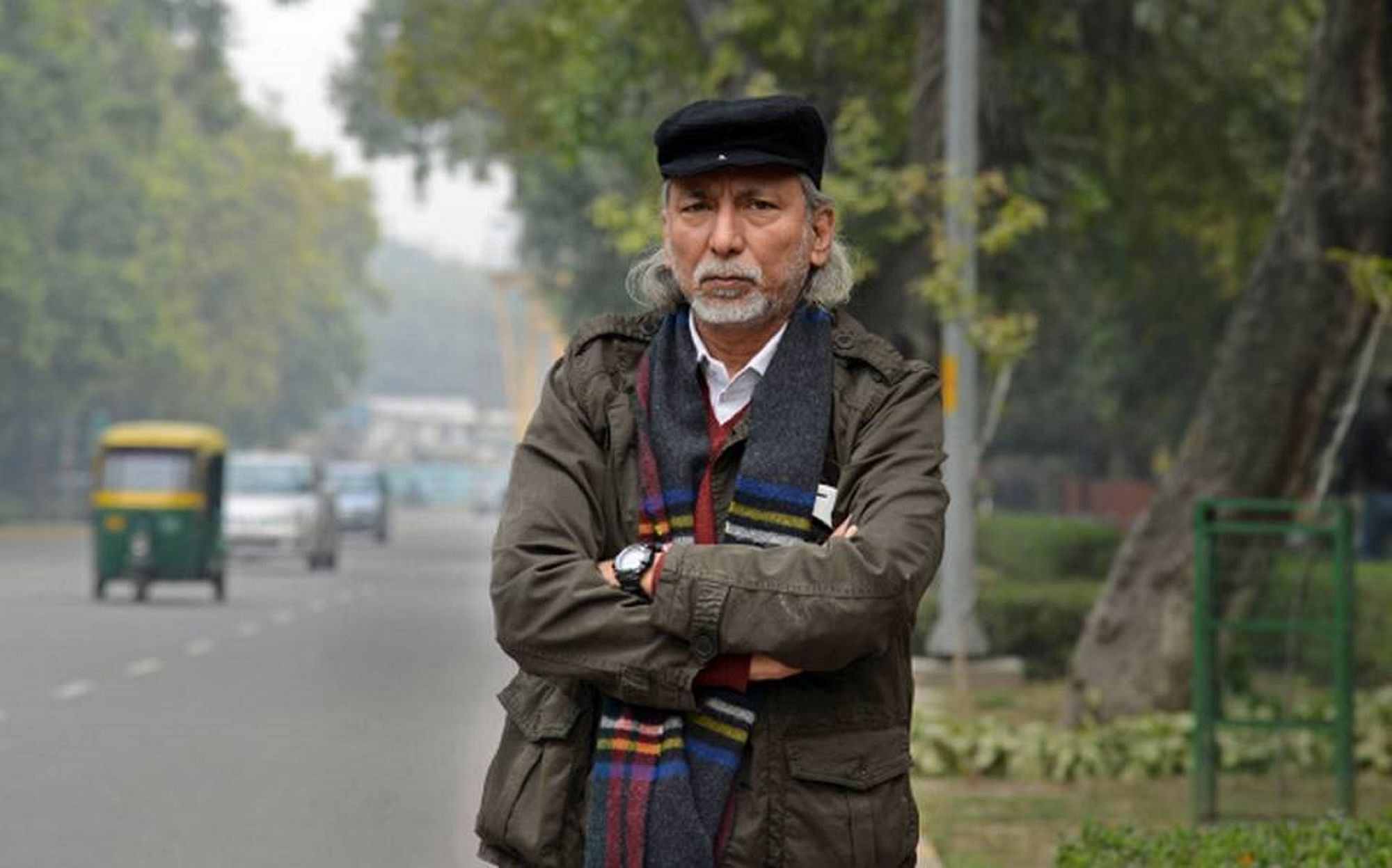Manoj Bajpayee, Piyush Mishra, Ashish Vidyarthi, Deepak Dobriyal, Huma Qureshi, Imran Khan, Ayushmann Khurrana, Yami Gautam, Shoojit Sircar, Imtiaz Ali, Anurag Kashyap, Vishal Bhardwaj, Tigmanshu Dhulia... they have one man in common — the temperamental and maverick N K Sharma, who trained and worked with them during their student days.
The elusive theatre director and founder of Act One theatre group is an odd-man-out in the city of celebrity worshippers. Here, he talks about why he refuses to be slotted as a star-maker...
Why do you keep out of the public eye?
Most people who interview me don’t know anything about theatre and I get irritated. Hence I keep myself away. You are a theatre practitioner, so I had no hesitation in saying yes to the interview.
In an interview, you have said that the focus has moved from the writer, director & actor, to design. Please elaborate...
From the writer-director, the focus has shifted to the designer-director. A play is a writer and director’s vehicle that the actor inhabits. But now, stage design has triumphed over story
and direction.
Where does the money for this design come from, considering theatre-’wallahs’ are always complaining about lack of funding?
We are a market economy and funding is always available for something that is glitzy. It happens with performers, too. While talented people languish for want of funds, those who hire famous names will always get that funding. Today, what matters is a famous face and stage design; content and creativity have been given short shrift. There is also an erosion of the intellect.
A play that makes you think becomes ‘heavy’ and therefore avoidable, but silly satires — which have racist or gender-insensitive jokes — get good houses. It’s a pitiable state.
What about cutting-edge theatre that is emerging in our metropolises? Some of them have been nurtured by established theatre institutions abroad. Of course, most of them are in English.
Mumbai has a lot of these. These are people who are fed up with the lowbrow stuff on TV, and want to explore something else. Yes, they have fantastic new ideas. Like this play that this 20-something playwright wrote on the plight of pregnant women in Mumbai’s local trains. Unfortunately, most of them lack the craft to execute these ideas.
Many times, intellectualism is imposed on the audience. There’s a great explanatory note in the brochure and nothing of that gets executed in the production. Basically, there is an allergy towards reading and study today, which, combined with mediocre writing skills and execution, has led to this lamentable situation in the so-called experimental space.
You avoid talking about the famous Bollywood names who were once your students. Why?
It’s celebrity culture that I don’t subscribe to. Out of every student that has made it, I also have a number of them who are still struggling, and they are as dear to me.
You have a reputation as a tough teacher. Do you believe in the ‘guru-shishya parampara’?
I don’t subscribe to that theory. And I am badnaam for no reason. If I was that tough, I wouldn’t still be a part of my former students’ lives.
What is the ‘mantra’ that brings all these aspirants to you?
It is the process. First of all, I teach them how to become good human beings. Being a good actor or director depends on that. Then I teach them to listen. Most actors don’t listen. A musician once told me, ‘Sur gale mein nahin, kaan mein hota hai.’ (Appreciation of musical notes comes from the ear, not the throat).
I teach them to be observant, to learn from their environment, because that adds to their creativity. I ask them to develop an attitude that shows pride in their work. If you don’t cultivate arrogance, people take you for granted. We work collectively and that is where true creativity lies. Combine all this with hard work, and you have the mantra, although I would hesitate to call it that.
A lot of theatre workshops have sprung up in the big cities. Are they helpful to aspiring actors?
‘Workshop’ and ‘improvisation’ are much-abused words in Indian theatre today. Newbies who don’t even know how to stand want workshops and improvisation classes. These are meant for established and mature actors who want to unlearn the old skills and get on to something new and exciting.
Which play has more of an impact? One that stimulates your mind or one that touches your heart?
I believe that if it does not touch your heart, it cannot stimulate your intellect. I may as well sit at home and read a book. It’s a performing art and you are using a public space. I would go a step forward and say that it should entertain you, too.
Which is your favourite play, and why?
I find Tendulkar’s Ghashiram Kotwal the greatest contemporary play in India. It’s a subtle political and social commentary. Class and caste conflicts are implied in the story without flagging them as such. This is an example of good playwriting, which we lack today.
How do you see the future of theatre?
The future of theatre lies in the hands of college students. That is where creativity lies; that is where amazing ideas are burgeoning. Nobody can match what is happening there,
at the level of writing, performance, and direction. It is fantastic! I saw a Khalsa College street play last year, just a half-hour performance on a women’s issue, and I was stumped!
